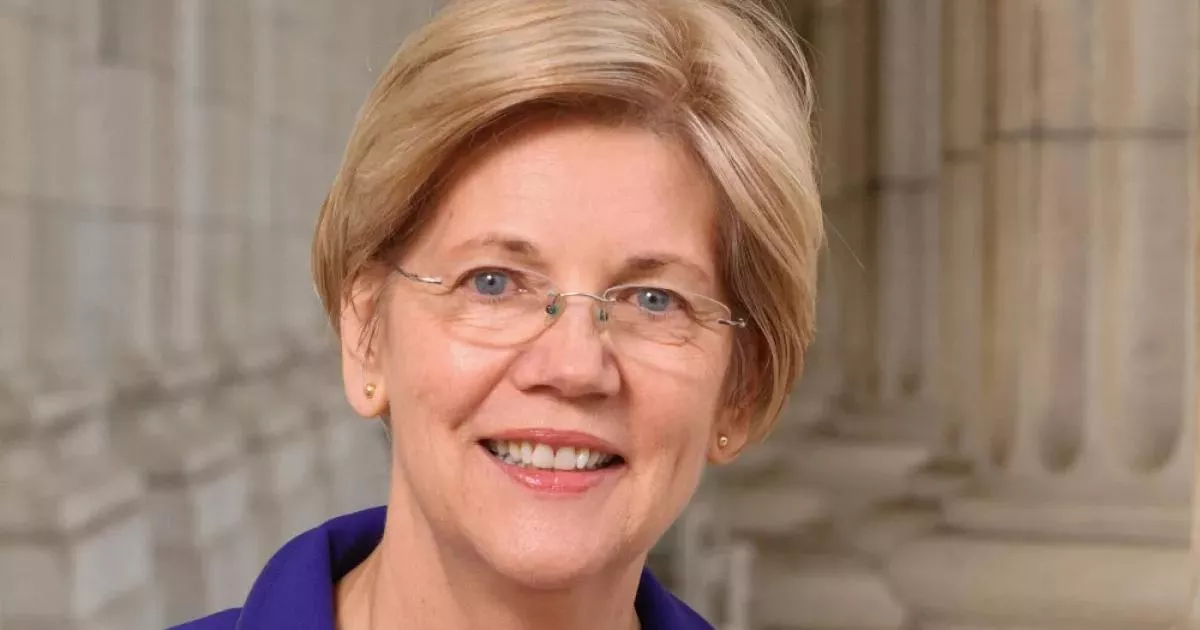Discover the defining moments in the early life of Elizabeth Warren. From birth to education, explore key events.
Elizabeth Warren is a prominent American politician and the senior U.S. Senator from Massachusetts since 2013. As a Democrat known for her progressive views, she champions consumer protection, economic equality, and social welfare programs. Warren gained national attention as a 2020 presidential candidate, where she advocated for significant reforms. Before entering politics, she was a distinguished law professor specializing in bankruptcy. Her policy proposals and advocacy have positioned her as a leading voice in contemporary American political discourse, particularly on issues of economic fairness and corporate accountability.
1911: Birth of Donald Jones Herring
In 1911, Donald Jones Herring, Elizabeth Warren's father, was born. He later served as a U.S. Army flight instructor during World War II.
1912: Birth of Pauline Louise Reed
In 1912, Pauline Louise Reed, Elizabeth Warren's mother, was born. She later married Donald Jones Herring and became a homemaker.
June 22, 1949: Elizabeth Warren Born in Oklahoma City
On June 22, 1949, Elizabeth Ann Herring, now known as Elizabeth Warren, was born in Oklahoma City, Oklahoma.
June 22, 1949: Elizabeth Warren's Birth
On June 22, 1949, Elizabeth Ann Warren (née Herring) was born in Oklahoma City, Oklahoma.
1968: Left George Washington University
In 1968, Elizabeth Warren left George Washington University after two years to marry James Robert "Jim" Warren, whom she had met in high school.
1970: Graduated from the University of Houston
In 1970, Elizabeth Warren graduated from the University of Houston with a Bachelor of Science degree in speech pathology and audiology.
1970: Taught Children with Disabilities
In 1970, after obtaining her degree but before enrolling in law school, Elizabeth Warren taught children with disabilities for a year in a public school.
1976: Received Juris Doctor
In 1976, Elizabeth Warren received her Juris Doctor and passed the bar examination shortly thereafter. She also became pregnant with her second child, Alexander.
1976: Voted for Gerald Ford
In 1976, Elizabeth Warren voted for Gerald Ford in the presidential election, which was the only time she voted for the Republican nominee in the six presidential elections before 1996.
1977: Lecturer at Rutgers
In 1977, Elizabeth Warren began her career in academia as a lecturer at Rutgers University, Newark School of Law.
1978: Moved to University of Houston Law Center
In 1978, Elizabeth Warren moved to the University of Houston Law Center.
July 12, 1980: Warren Marries Bruce H. Mann
On July 12, 1980, Elizabeth Warren married law professor Bruce H. Mann, her second husband, but chose to retain her first husband's surname.
1980: Associate Dean at University of Houston
In 1980, Elizabeth Warren became an associate dean at the University of Houston Law Center.
1980: Published Article on Public Utilities
In 1980, Elizabeth Warren published an article in the Notre Dame Law Review arguing that public utilities were over-regulated and that automatic utility rate increases should be instituted.
1983: University of Texas School of Law Professor
In 1983, Elizabeth Warren returned to the University of Texas School of Law as a full professor after being a visiting associate professor in 1981.
1984: Warren identified herself as Cherokee in cookbook
In 1984, Elizabeth Warren contributed recipes to a Native American cookbook and identified herself as Cherokee.
1985: Visiting Professor at University of Michigan
In 1985, Elizabeth Warren was a visiting professor at the University of Michigan.
1986: Warren identified her race as 'American Indian' on a State Bar of Texas form
In 1986, Elizabeth Warren identified her race as "American Indian" on a State Bar of Texas write-in form used for statistical information gathering.
1987: End of UT Austin Position
In 1987, Elizabeth Warren concluded her time as a research associate at the Population Research Center of the University of Texas at Austin and as a professor at the University of Texas School of Law.
1987: Joined University of Pennsylvania Law School
In 1987, Elizabeth Warren joined the University of Pennsylvania Law School as a full professor.
1989: Published 'As We Forgive Our Debtors'
In 1989, Elizabeth Warren, along with colleagues Teresa A. Sullivan and Jay Westbrook, published their research in the book "As We Forgive Our Debtors."
1990: Obtained Endowed Chair
In 1990, Elizabeth Warren obtained an endowed chair at the University of Pennsylvania Law School, becoming the William A. Schnader Professor of Commercial Law.
1991: Registered as a Republican
Elizabeth Warren was registered as a Republican from 1991 to 1996.
1992: Visiting Professor at Harvard Law School
In 1992, Elizabeth Warren taught for a year at Harvard Law School as the Robert Braucher Visiting Professor of Commercial Law.
1995: Public Policy Involvement
In 1995, Elizabeth Warren began her involvement in public policy by working to oppose what eventually became the 2005 act restricting bankruptcy access for individuals.
1995: Began Voting Democratic
In 1995, Elizabeth Warren began to vote Democratic because she no longer believed that the Republicans were the party who best supported markets.
1995: Professor at Harvard Law School
In 1995, Elizabeth Warren left the University of Pennsylvania to become the Leo Gottlieb Professor of Law at Harvard Law School.
1995: Advisor to National Bankruptcy Review Commission
In 1995, Elizabeth Warren was asked to advise the National Bankruptcy Review Commission by its chair, former congressman Mike Synar.
1995: Death of Pauline Louise
In 1995, Pauline Louise (Reed) Herring, Elizabeth Warren's mother, passed away.
1996: Republican Party Affiliation Ends
Elizabeth Warren's Republican Party affiliation ended in 1996, after being registered as a Republican since 1991.
1996: Highest-Paid Professor at Harvard
In 1996, Elizabeth Warren became the highest-paid professor at Harvard University who was not an administrator.
1997: Death of Donald Jones Herring
In 1997, Donald Jones Herring, Elizabeth Warren's father, passed away.
2004: Appearance on Dr. Phil Show
In 2004, Elizabeth Warren began to rise in prominence with an appearance on the Dr. Phil show, and published several books including The Two-Income Trap.
2004: Article in Washington University Law Review
In 2004, Elizabeth Warren published an article in the Washington University Law Review arguing that correlating middle-class struggles with over-consumption was a fallacy.
2005: Most-Cited Scholars
From 2005 to 2009, Elizabeth Warren was among the three most-cited scholars in the fields of bankruptcy and commercial law.
2005: Bankruptcy Act Opposition
In 2005, an act restricting bankruptcy access for individuals, which Elizabeth Warren had opposed since 1995, was passed.
2005: Bankruptcy Abuse Prevention and Consumer Protection Act Passed
In 2005, despite Elizabeth Warren's opposition, Congress passed the Bankruptcy Abuse Prevention and Consumer Protection Act of 2005, which curtailed consumers' ability to file for bankruptcy.
2006: Member of FDIC Advisory Committee
From 2006 to 2010, Elizabeth Warren was a member of the FDIC (Federal Deposit Insurance Corporation) Advisory Committee on Economic Inclusion.
November 14, 2008: Appointed Chair of Congressional Oversight Panel
On November 14, 2008, Elizabeth Warren was appointed by U.S. Senate majority leader Harry Reid to chair the five-member Congressional Oversight Panel created to oversee the implementation of the Emergency Economic Stabilization Act.
2008: Advocacy for Banking Regulations
In 2008, Elizabeth Warren's national profile grew due to her strong public stances in favor of stricter banking regulations after the 2008 financial crisis.
2009: Most-Cited Scholars
From 2005 to 2009, Elizabeth Warren was among the three most-cited scholars in the fields of bankruptcy and commercial law.
July 2010: CFPB Established by Dodd-Frank Act
In July 2010, the Consumer Financial Protection Bureau (CFPB) was established by the Dodd–Frank Wall Street Reform and Consumer Protection Act, which was signed into law by President Obama.
September 2010: Named Special Advisor for CFPB
In September 2010, President Obama named Elizabeth Warren Assistant to the President and Special Advisor to the Secretary of the Treasury on the CFPB to set up the new agency.
2010: Member of FDIC Advisory Committee
From 2006 to 2010, Elizabeth Warren was a member of the FDIC (Federal Deposit Insurance Corporation) Advisory Committee on Economic Inclusion.
2010: Brown Won Senate Seat
In 2010, Republican Scott Brown had won the U.S. Senate seat in a special election after Ted Kennedy's death, which Elizabeth Warren sought to win back in 2012.
September 14, 2011: Declared Senate Candidacy
On September 14, 2011, Elizabeth Warren declared her intention to run for the Democratic nomination for the 2012 election in Massachusetts for the U.S. Senate.
2011: Harvard's Only Tenured Public Law School Professor
As of 2011, Elizabeth Warren was Harvard's only tenured law professor who had attended law school at an American public university.
2011: Impetus for CFPB Establishment
In 2011, Elizabeth Warren's scholarship and public advocacy were the impetus for establishing the Consumer Financial Protection Bureau.
January 2012: Cordray Appointed to CFPB
In January 2012, President Obama appointed former Ohio attorney general Richard Cordray as the director of the CFPB in a recess appointment, due to concerns that Elizabeth Warren could not win Senate confirmation.
2012: Campaign for US Senate
In 2012, Elizabeth Warren campaigned for the U.S. Senate in Massachusetts.
2012: Elected as U.S. Senator
In 2012, Elizabeth Warren defeated incumbent Republican Scott Brown and became the first female U.S. senator from Massachusetts.
2012: Warren says being Native American has been part of her story
In 2012, Elizabeth Warren stated that "being Native American has been part of my story, I guess, since the day I was born".
2012: Obama Echoed Warren's Sentiments
In 2012, President Obama echoed Elizabeth Warren's sentiments in an election campaign speech.
2013: Became U.S. Senator
In 2013, Elizabeth Warren became the senior United States Senator from the state of Massachusetts.
October 2018: Warren releases DNA test analysis
In October 2018, Elizabeth Warren released an analysis of a DNA test by geneticist Carlos D. Bustamante that found her ancestry to be mostly European but "strongly support[ed] the existence of an unadmixed Native American ancestor".
2018: Re-elected as U.S. Senator
In 2018, Elizabeth Warren was reelected as a U.S. Senator, defeating Republican nominee Geoff Diehl.
January 2019: Warren discusses DNA testing in Iowa
During a January 2019 public appearance in Sioux City, Iowa, Elizabeth Warren responded to a question about her DNA testing, clarifying that she is not a person of color or a citizen of a tribe and that tribal citizenship is determined by tribes, not DNA tests.
February 9, 2019: Announced Presidential Candidacy
On February 9, 2019, Elizabeth Warren announced her candidacy in the 2020 United States presidential election.
February 2019: Warren visits Native American conference
In February 2019, Elizabeth Warren received a standing ovation during a surprise visit to a Native American conference, where she was introduced by Representative Deb Haaland.
2019: Politico Article on Warren's Political Views
In 2019, Politico reported that a close high-school friend described Elizabeth Warren as a "diehard conservative" in high school, and colleagues noted changes in her political views over time.
March 5, 2020: Withdrew from Presidential Race
On March 5, 2020, after Super Tuesday, Elizabeth Warren withdrew from the 2020 United States presidential election.
April 23, 2020: Warren announces her brother's death
On April 23, 2020, Elizabeth Warren announced on Twitter that her eldest brother, Don Reed Herring, had died two days prior from COVID-19.
2020: 2020 Presidential Campaign
In 2020, Elizabeth Warren was a candidate in the Democratic Party presidential primaries, finishing third after Joe Biden and Bernie Sanders.
October 1, 2021: Warren announces her brother John's death
On October 1, 2021, Elizabeth Warren announced that her brother, John Herring, had died of cancer.
2022: Combined income of $1 million reported
In 2022, Elizabeth Warren and her husband reported a combined income of $1 million, with her salary as a U.S. Senator accounting for only a fifth of that sum.
2024: Re-elected to Senate
In 2024, Elizabeth Warren was reelected to a third Senate term against Republican nominee John Deaton.
2025: Net worth estimated at $8 million
As of early 2025, TheStreet.com estimates Elizabeth Warren's net worth to be at least $8 million.
Mentioned in this timeline

Donald John Trump is an American politician media personality and...

Bernie Sanders is a prominent American politician currently serving as...

Bill Clinton the nd U S President - served as...

Barack Obama the th U S President - was the...

Alexandria Ocasio-Cortez AOC is a prominent American politician and activist...

Hillary Diane Rodham Clinton is a prominent American politician lawyer...
Trending

31 minutes ago Shaq Reveals Phil Jackson's Motivation Tactics; ESPN Changes 'Inside the NBA' Lineup.

31 minutes ago Jaden Ivey sidelined for weeks with knee soreness; Bulls confident on recovery.

31 minutes ago AJ Dybantsa: Potential $100 Million NBA Prospect, 2026 Mock Draft Predictions Emerge

32 minutes ago Kevin Durant praises Jabari Smith Jr. as a cornerstone for Rockets' small-ball.

2 hours ago Mikey Musumeci fires back at Dillon Danis after opponent mocking.
2 hours ago US grants Serbia sanctions waiver for NIS oil firm until March 20, 2026.
Popular

Jesse Jackson is an American civil rights activist politician and...

Barack Obama the th U S President - was the...

Bernie Sanders is a prominent American politician currently serving as...

Ken Paxton is an American politician and lawyer serving as...

Michael Joseph Jackson the King of Pop was a highly...
WWE Raw a professional wrestling television program by WWE airs...


